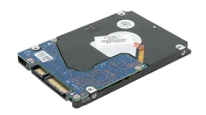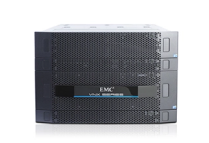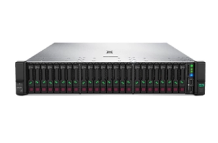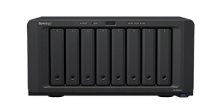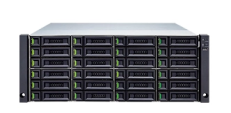RAID 50 Data Recovery Services
Efficient RAID 50 Data Recovery
PITS Global Data Recovery Services specializes in RAID 50 recovery, handling complex issues like disk failures, array corruption, and data loss. Using advanced techniques, the team ensures secure and fast restoration of critical business data, reducing downtime and maintaining continuity.
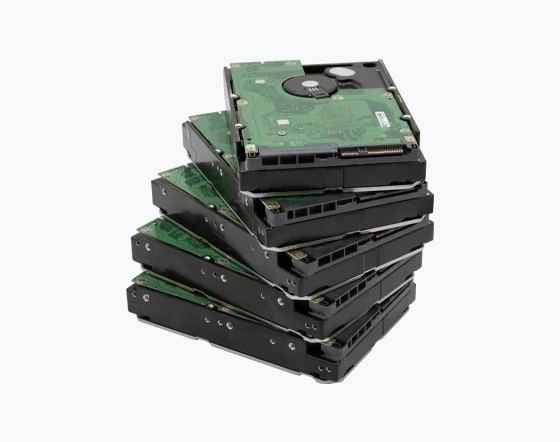






Understanding RAID 50
RAID 50 is a powerhouse for data storage, offering a balanced mix of performance, redundancy, and capacity. Comprising multiple RAID 5 arrays striped together, it is an excellent choice for businesses seeking data protection without compromising speed and storage space. But what happens when your RAID 50 array faces failure? That’s where our expertise shines.
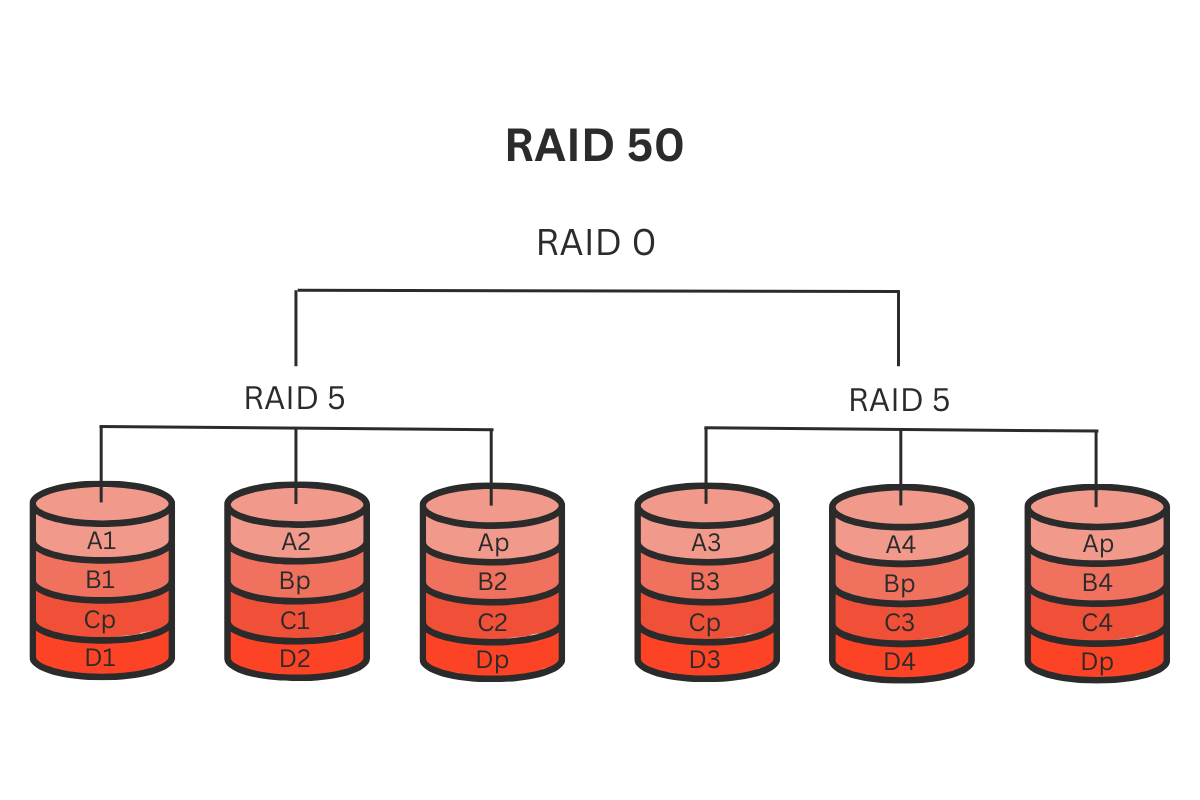
Our Data Recovery for RAID 50
Given its intricate architecture, RAID 50 recovery can be complex and daunting. When a RAID 50 array encounters issues such as drive failures, controller failures, or accidental file deletion, it is crucial to seek professional data recovery services like ours. Attempting to recover data without the right expertise can exacerbate the problem and lead to permanent data loss.
We have a team of seasoned experts with extensive experience in RAID 50 recovery. Our specialists are well-versed in RAID 50 data recovery techniques, ensuring the highest success rates in the industry. We invest heavily in state-of-the-art technology and tools designed for RAID 50 recovery. From specialized RAID controllers to advanced file system recovery software, we leave no stone unturned in our quest to recover your data.
Our RAID 50 recovery service covers many issues, including RAID 50 failures, drive failures, controller failures, accidental file deletion, and more. We can handle RAID 50 arrays of any size and configuration, ensuring a tailored solution for your unique needs.
How to Recover with RAID 50
Assessment
Upon receiving your RAID 50 array, our experts thoroughly assess the extent of the damage and the data recovery possibilities. This initial step is critical in devising a customized recovery plan.
Data Extraction
Using cutting-edge tools and techniques, we extract data from the RAID 50 array, ensuring the highest level of data integrity throughout the process.
Delivery
Once your data is fully recovered and verified, we deliver it securely, allowing you to resume your operations with minimal downtime.
Reconstruction
In cases of RAID 50 failures, our experts meticulously reconstruct the array to retrieve your valuable data. This process demands a deep understanding of RAID 5 arrays, controllers, and file systems.
Data Verification
Before returning your recovered data, we provide a verification session for a client. This way, a customer can review all the recovered files.
Related Data Recovery Services to RAID 50
Data loss can be devastating in an era where data is more valuable than ever. But with PITS Global Data Recovery Services by your side, you have a reliable partner to recover your data from RAID 50, drive, controller, and more failures. We are committed to providing you with the highest-quality data recovery service and ensuring your data is safe.
Do not let RAID 50 data recovery become a nightmare. Trust the experts at PITS Global Data Recovery Services to recover your valuable data and get you back on track. Contact us today for a consultation, and let us help you regain control over your data.
In addition to its comprehensive data recovery services, a reputable provider will typically offer thorough diagnostics. During this phase, highly skilled technicians carefully assess the extent of data loss, employing advanced techniques to determine the recoverability of the data. By conducting a detailed analysis, clients have a clear and accurate understanding of the recovery possibilities, allowing them to make informed conclusions concerning their data retrieval needs.
Data Verification Process
Verify Your Data
Once we have successfully recovered your data, we will arrange a secure remote session for you. This allows you to:
Confirm the Recovery
Convenient Verification
Privacy Assured
Our expert engineers use advanced technology to recover your data quickly and securely. We specialize in complex cases with high success rates, offering tailored solutions for both businesses and individuals. Fill out the form to start a seamless recovery process.
- Quick and Secure Data Recovery
- Expert Engineers for All Devices
- No Data, No Fee Guarantee
Contact our specialists today for a quick, hassle-free recovery. We’re here to guide you every step of the way and ensure your data is securely restored. Your peace of mind is our priority.
Contact us today to get started!
"*" indicates required fields
Customer Reviews
We take pride in delivering exceptional service and results. Don’t just take our word for it—see what our customers have to say about their experience with PITS Data Recovery.
Total Reviews
1,000+
21%
Growth in reviews this year
Average Rating
4.9
Consistent excellence
Drives Recovered
100,000+
Industry-leading success rate
Frequently Asked Questions
What is RAID 50 data recovery?
RAID 50 data recovery is the process of retrieving lost or inaccessible data from a RAID 50 configuration, which is a type of RAID that combines the data protection of RAID 5 with the performance benefits of RAID 0.
What are the risks of attempting DIY data recovery from a RAID 50 configuration?
Attempting DIY data recovery from a RAID 50 configuration can increase the risk of further data loss or corruption, as well as the risk of damaging the disk or the data stored on it.
How long does it take to recover data from a RAID 50 configuration?
The time it takes to recover data from a RAID 50 configuration can vary widely depending on the cause of the data loss, the size of the data, and the complexity of the recovery process. On average, a professional data recovery service can take anywhere from a few days to several weeks to complete a RAID 50 data recovery.
Is RAID 50 data recovery possible if multiple disk drives have failed?
The possibility of successful RAID 50 data recovery depends on the number of disk drives that have failed and the extent of the damage to the disk drives. In general, the more disk drives that have failed, the more difficult and complex the recovery process will be. If multiple disk drives have failed, it is recommended to seek the help of a professional data recovery service.
What kind of tools and equipment are required for RAID 50 data recovery?
Professional data recovery services typically use specialized tools and equipment for RAID 50 data recovery, including hardware and software RAID controllers, disk imaging tools, and data recovery software.
Can data recovery from a RAID 50 configuration result in data loss or corruption?
The data recovery process can have a risk of further data loss or corruption, especially if it is not performed by a professional data recovery service with the necessary expertise and experience.
Can data recovery from a RAID 50 configuration recover all data?
The success rate of data recovery from a RAID 50 configuration depends on the cause of the data loss and the extent of the damage to the disk drives. In many cases, it is possible to recover most or all of the data, but in some cases, some data may be permanently lost.
Is it necessary to take the disk drives out of the server to recover data from a RAID 50 configuration?
In some cases, it may be necessary to take the disk drives out of the server to recover data from a RAID 50 configuration, but in many cases, it is possible to perform the data recovery on-site.
What should I do if I need to recover data from a RAID 50 configuration?
If you need to recover data from a RAID 50 configuration, it is important to immediately stop using the disk drives and to seek the help of a professional data recovery service as soon as possible.
How can I ensure the confidentiality of my data during the data recovery process?
To ensure the confidentiality of your data during the data recovery process, it is important to choose a professional data recovery service with a proven track record of handling confidential data securely. Many data recovery services offer secure data handling, encryption, and data destruction services to ensure the confidentiality of your data.
What is the success rate of data recovery from a RAID 50 configuration?
The success rate of data recovery from a RAID 50 configuration depends on the cause of the data loss and the extent of the damage to the disk drives. On average, professional data recovery services have a high success rate, with more than 95% of all data recovery cases resulting in successful data recovery.
We’re Here to Help
Our experienced team is committed to helping you recover your critical data. No matter the situation, we work diligently to ensure the best possible outcome. Take action now and let us restore what’s important to you.
Start Recovery Process
Our main priority is providing excellent customer service and a top-notch customer experience for all clients. To get started, simply fill out the help form below. A dedicated customer service representative will then reach out to you to assess your needs and provide comprehensive information about our data recovery services.
"*" indicates required fields
